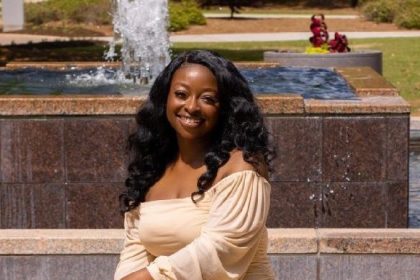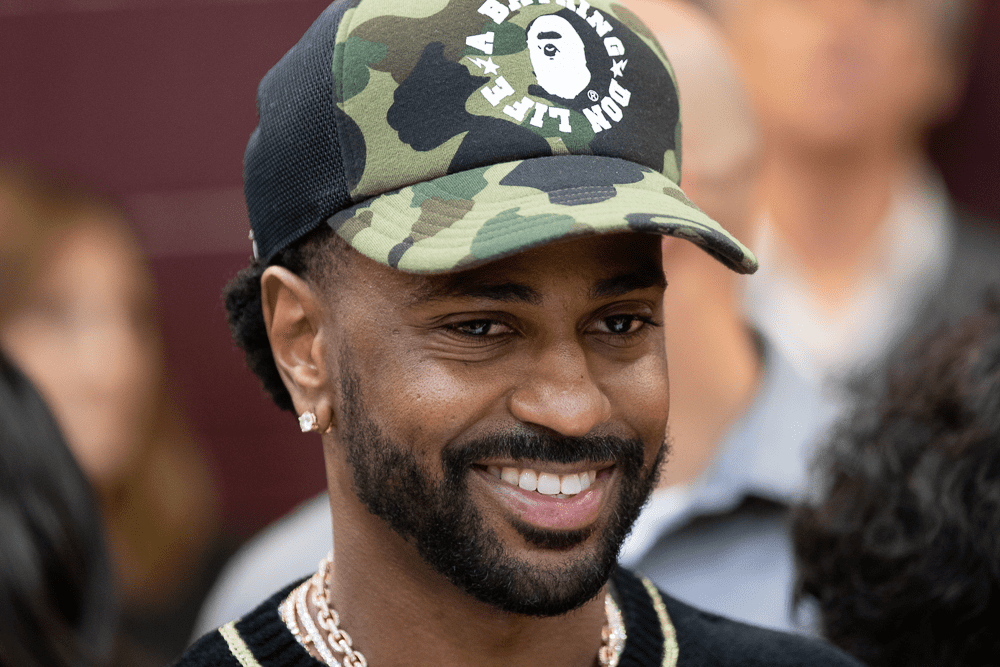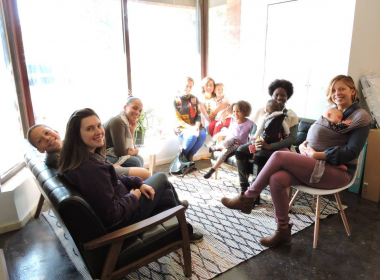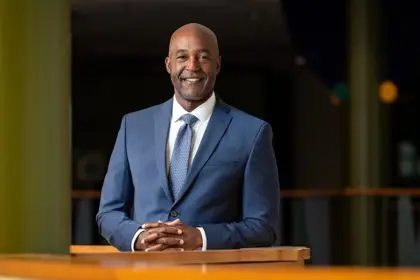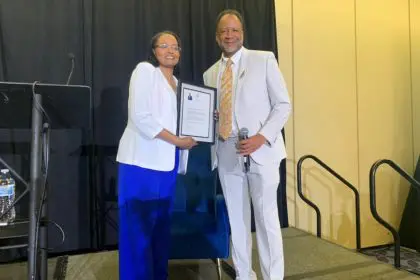
Adoption of black children has its own special set of problems. Rolling out is focusing on agencies that tackle and facilitate these issues. Ruth Amerson is CEO of Another Choice for Black Children, Inc., based in North Carolina. She spoke with rolling out about her organization and the unique challenges facing parents who want to adopt black children.
Tell us about your organization and your role?
Another Choice for Black Children, Inc., is North Carolina’s first adoption agency focusing on finding families to adopt school aged children from the foster care system. We are a not for profit licensed child placing agency and accredited by the Council on Accreditation. Our board, staff, contractors, and volunteers strongly believe that all children are adoptable. We have been successful in finding families for children whom many social workers considered “unadoptable” due to their age or developmental, emotional, physical or special needs. Our mission statement is to “Build and Sustain Families.” To that end, we provide a range of services (often tailored) to meet the needs of our adoptive families to ensure that the family remain intact.
Why was your organization founded? What need did you see that was not being fulfilled?
Another Choice was founded on January 15, 1995 as a response to the child welfare community who felt and documented that Black children (particularly, boys) was unadoptable. They based this assumption and myth on the fact that black children were overrepresented and disproportionately represented in the foster care system. Most agencies did not recruit in the black community so they (well -meaning public agency’ managers, directors, social workers, court advocates and judges) were of the mindset that the black community was not concerned for our children and/or black families could not meet the eligibility requirements to adopt. Therefore, black children remained in care longer and/or aged out of foster care at an alarming rate. These youth had little to no skills, no connection to family and often lacked the necessary supports to navigate life. In North Carolina, a group of black social workers worked with state officials to apply for federal funding to start the Friends of Black Children program. This group was charged with networking with public agency and engaging the staff in cultural diversity training to enhance their knowledge of the strengths of the black community. Additionally, the project staff formed local community councils consisting of people from all walks of life to serve as a recruitment bridge between the Black community and public agencies. Subsequently, scores of Black families were recruited; however, while the program had tremendous success; far too many families encountered institutional barriers that prevented them from completing the process. As a result, a group of determined individuals sought funding to start a Black adoption agency; hence the creation of N.C.’s first and only black adoption agency.
What community does your organization serve?
Many people assume that we only serve black children because [of] the name of our agency. Actually, the very first placement for our agency was a sibling group of four caucasian children who was placed with a caucasian family. Out of the gate, we realized that this organization was ordained to change the lives of children far beyond our expectation. Therefore, we serve and have found families for children of different races and ethnicity. We also serve families (particularly) those who are willing to adopt children who may have special needs, school aged children, brothers and sisters, and teenagers.
What is the mission of your organization?
Our mission is simply to build and sustain families. We realize that children growing up in foster care must be a concerned for all. We also know that due the children’s history, losses or past rejections, adoptive families must be provided services that are supportive, readily accessible and tailored to meet their current and future needs.
What are some of the challenges your organization faces with the adoption of black children?
Despite the success of our agency and other black specialty agencies across the country, we still face barriers in getting children out of the system and into families. Workers bias often impacts the process as well as, unrealistic expectation that agencies place on prospective families. Barriers we faced 19 years ago are still present and we have to continue to advocate and work within, around and through a system that has not learned to value what our families bring to the table. Many agencies are still using outdated assessment tools and practices that simply “select families “out of the process as opposed to “selecting them in.’ It is also relevant to note that the children in need of families have more significant mental health or behavioral needs which make recruiting families for them more challenging. Many of these children have experience trauma, exposed to domestic violence, parental substance abuse, neglect, physical or sexual abuse, abandonment and a range of other issues, which often impacts their ability to form trusting relationship with adoptive families. That’s why quality and responsive post adoption is a critical need for families throughout the process — pre, during and following the adoption.
At Another Choice, we need more staff and resources. We maintain a waiting list of qualified families; however, we need additional staff to provide training, complete assessments on families and provide oversight when children are placed in the home. We need more resources to support our children and family programs.
How do you try to overcome these challenges?
To overcome some of the challenges noted above, we take it one day at a time and one agency at a time. The staff reaches out to agencies and participates in regional meetings to learn about waiting children. Additionally, we offer trainings, conduct focus groups and network with a variety of workers in order to strengthen outreach and outcomes.
As we are a not-for-profit organization, we seek grants and donations to help offset the cost of our services. We could use the service of a grant writer.
Who is the best person to consider adoption?
Our goal during our monthly information meetings and orientation classes are to educate, inform and support individuals and couples who have a desire to expand their family through adoption. The best family to adopt is persons who are committed to opening their hearts and homes to older children, siblings or teens and willing to be there through the difficult times. We are looking for families who are able to put the child’s or children needs before their own. Individuals or couples who will “not take it personally” when a child rejects or embarrass them should consider adoption. Persons who understand that it may take a lifetime before you see the fruit of your labor, but in faith, moving forth.
What cities have the most children for adoption?
Our main office is located in Charlotte, the Queen City, in North Carolina however, the children referred come from all over the state. Urban cities like Charlotte, Raleigh, and even Wilmington have a number of children available.
What are costs associated with adopting?
Another Choice does not charge any fees to families who adopt a foster child. However, fees vary with other agencies from $5,000 upward, particularly for families who want to adopt an infant.
What types of children are easiest to adopt and which are hardest to place?
Generally most families prefer to adopt infants or preschoolers. While the demand is there for infants, many private agencies do not have an adequate number of infants available. School aged children, sibling groups and teens are considered the hardest to place. Prospective families believe that it’s easier to “shape” a child when you get them as infants. In some ways, that may be true. However, when you witness the miracle that takes place when older children —especially teens are placed with their families — the feeling is indescribable.
What are the particular challenges you face with special needs kids?
Children who have special needs look like everyone else. There are varying degrees of special needs. Some children may have learning difficulty, speech problems, mental health diagnoses, physical disability, social disability, or emotional problems. Parents who adopt a child with special needs will need to have the patience of Job, heart of David, wisdom of Solomon and the veracity of Sojourner Truth.
How are prospective adoptive parents evaluated?
Prospective families participate in a 30 hour parent preparation class that includes information on grief, loss, attachment, discipline and etc. Worker’s also gather information from a number of sources including background criminal record checks, fingerprinting, financial records, employment record and physical examinations. Joint and individual sessions are also held with prospective families and references are obtained. The team reviews all information including how the families identify their strengths and needs and their background history to assess a prospective family’s ability to parent the children who are target population.
Does your organization place children with same sex couples? What set of criteria do you use for placement in same-sex homes? Is it easier in your opinion for black children to be adopted by same sex couples?
As mentioned previously, we work with all kinds of families and use the same criteria throughout the process. Sexual orientation does not define parenting ability and neither does how much money one has in the bank, or how much education one has or whether a person rents or owns their home. Our goal is to recruit families for the children who are waiting for a permanent home. Families come in all shapes, sizes and composition and so does the children who need them.
What is your greatest hope for your organization?
My greatest hope for our organization is to work ourselves out of a job. I look forward to the day that more services and resources are put up front in supporting families so they will be able to keep their children in the home or within the family (albeit- extended, fictive, friends). When that is not possible, identifying caring, stable and loving adults who are willing and committed to being a bridge for that child until they reach the age of the majority.
Do you have a particular success story that you would like to share?
We have been blessed with so many incredible children and families that it is difficult to highlight one story. But, what comes to mind is a 13 year old boy, named Holden. A single dad was approved to adopt him. After several visits, a placement date was set. One of our contractors transported Holden to his new home and Holden had the biggest smile on his face. The contractor asked, “Why are you smiling so hard?” Holden replied, “I’m finally going home to my own family.”
How would you title a speech about the future skill sets needed to be successful adoptive parent?
Be joyful in hope; patient in times of trouble; continuing in prayer;” (Romans 12:12)
Name your three favorite books for insight and inspiration?
The Bible
Jesus CEO (Ancient Wisdom for Visionary Leadership)
Principles, Practices and Priorities of a Winning Life
How can we readers contact your agency?
They can visit the website at: https://acfbc.org/home.html
2340 Beatties Ford Road
Charlotte, North Carolina 28216
Phone: (704)394-1124
Warm Line: (800)774-3534
Fax: (704)394-3843
E-mail: [email protected]

